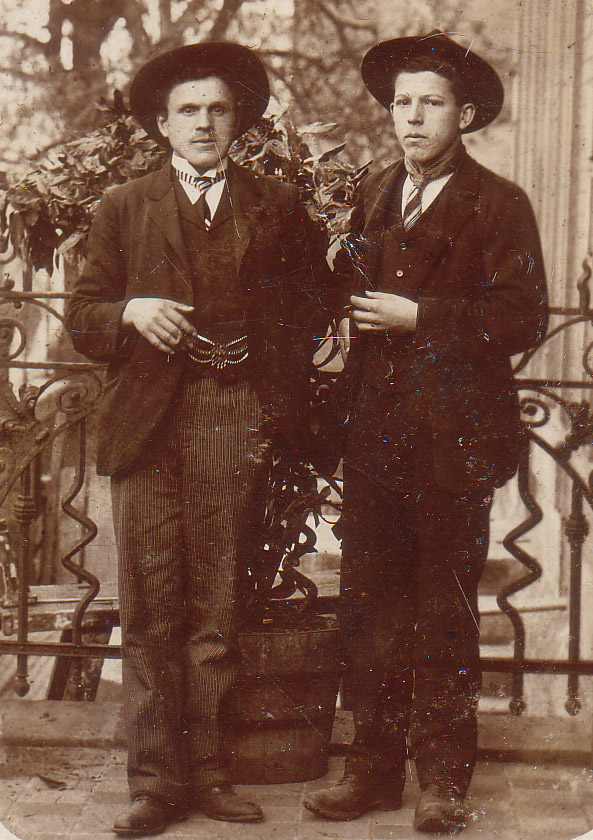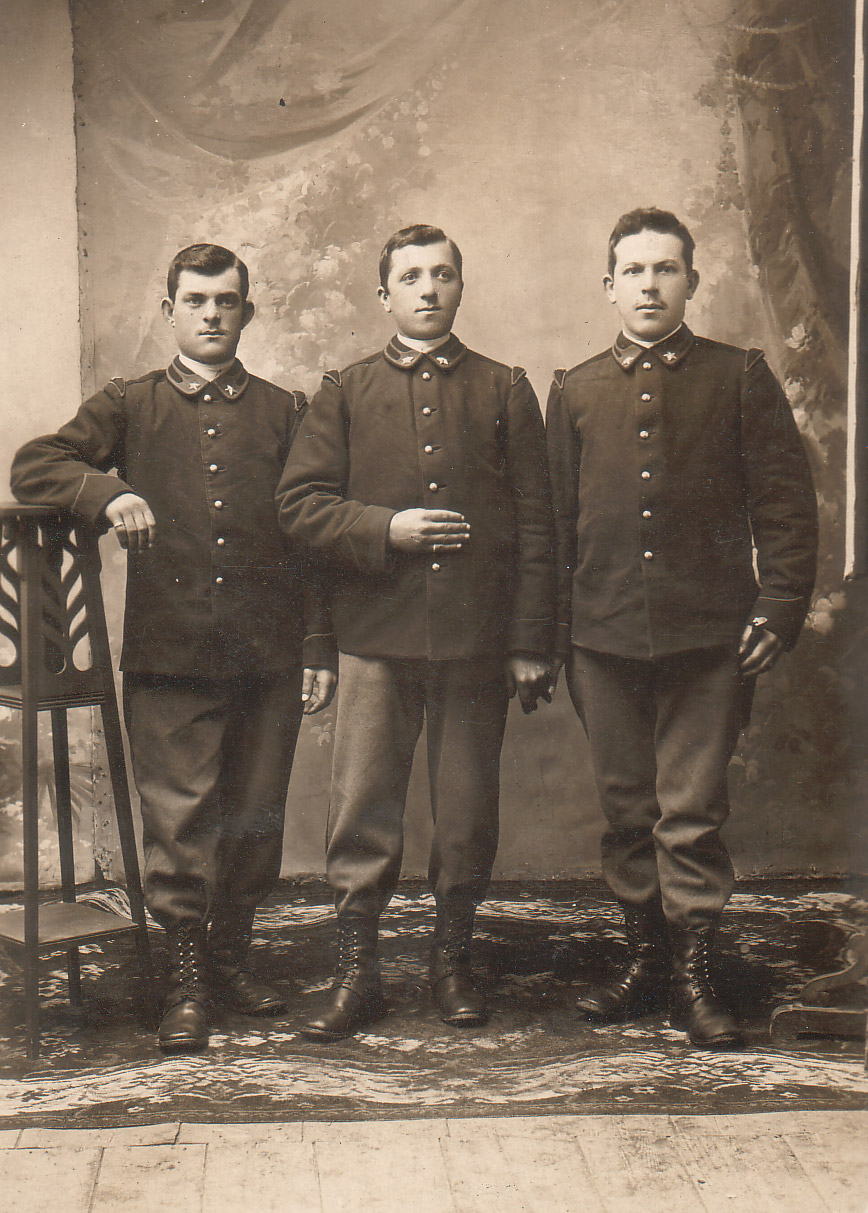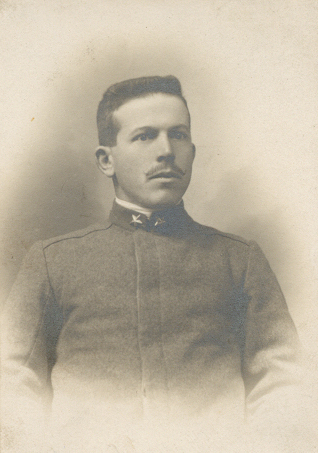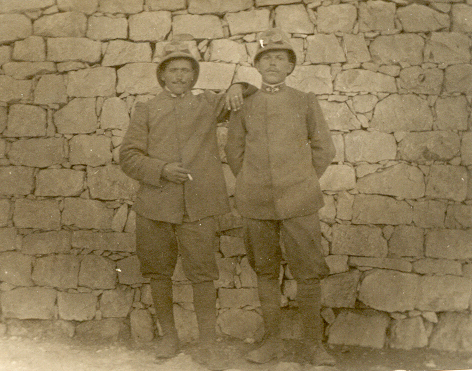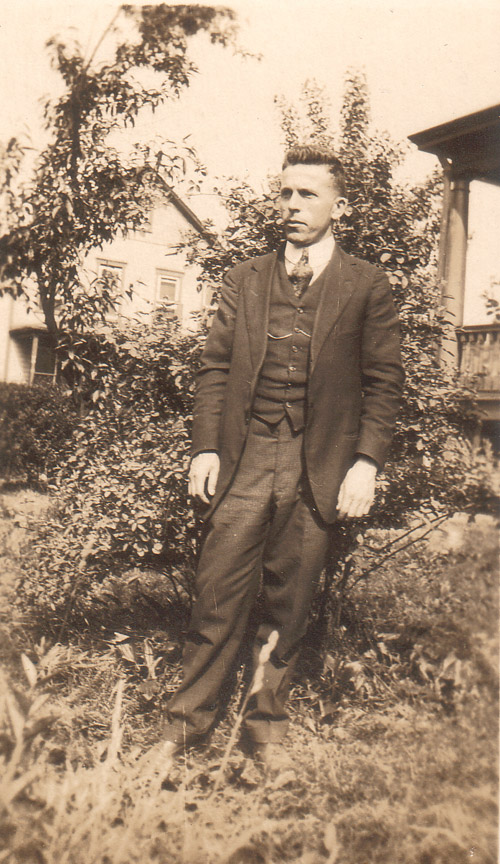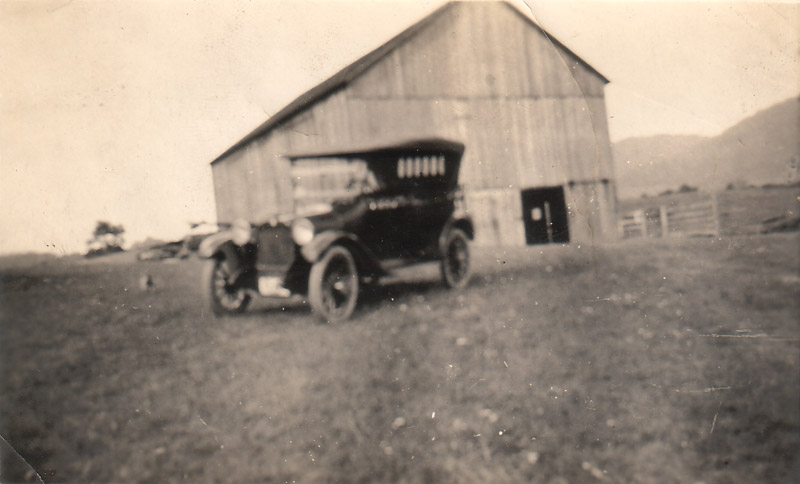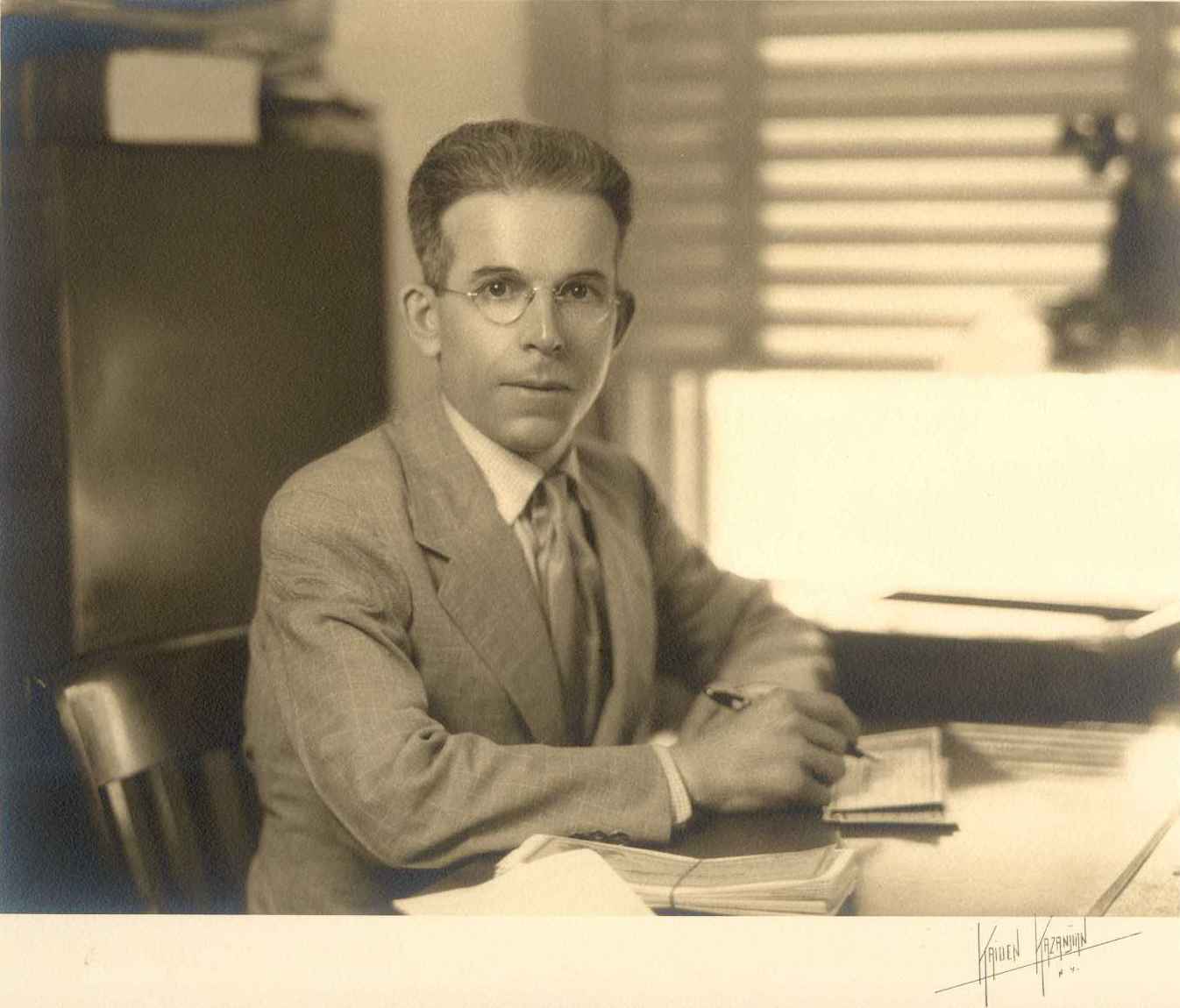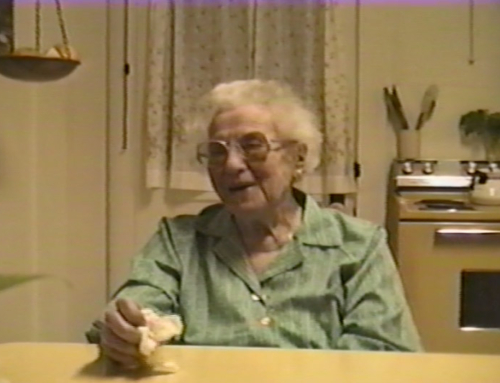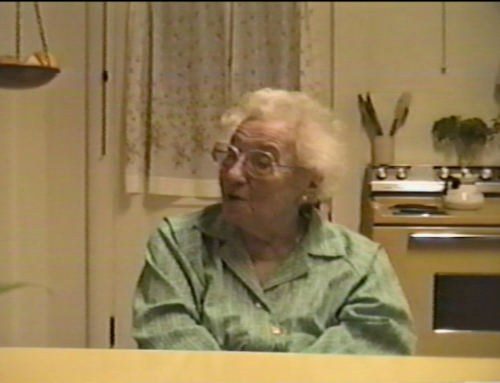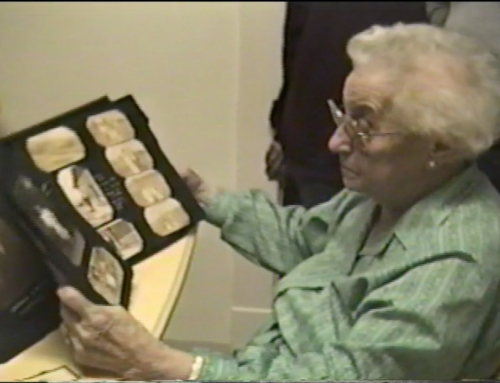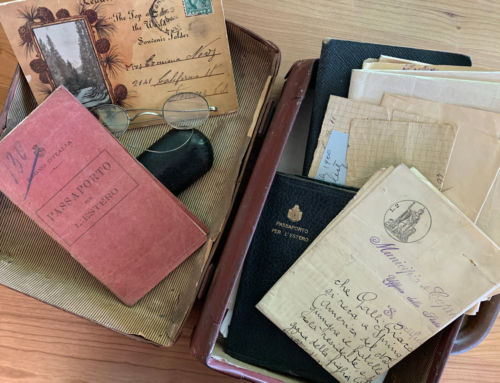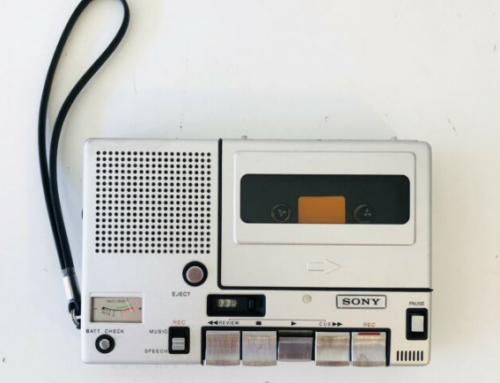Born April 10, 1889 in Bergotto, Italy, died February 21, 1978 in Cumberland, Maryland.
Transcribed from an audio tape made on July 5, 1967 in Arlington, Virginia, with Bill Orsinger.
Bergotto:
Well. I’m going to tell you my first impression in my life. I was about 6 years old and my father was going to leave, going to Marseille, France.
Some way or another I went outside and sleep in some straw. They had a lot of straw in there and I went there with another boy and we went to sleep. And around ten o’clock my father came and wake me up. He wanted to say goodbye to me; he was leaving. And I was impressed why he was so… he wanted to say goodbye to me like that. Then he left.
And about 6 months later one day we receive a letter from my brother Henry who was over there with my father in Marseille. My mother couldn’t read. She told me to wait this fellow who was going to come down from the country there to call him so he would read this letter. And the man came down. And I call him. He came over. And he started to read the letter and then he stopped. And of course my mother realized what had happened. She start to cry. And there was a big guy and he was crying to beat the band. And finally we realize that my father was dead.
Well, from that time on I started to do some about the house. Of course. I had my brothers working on the little farm and I was going out with another girl and tending the cows. Finally, in a couple of years, she was tending to the cows and they gave me the sheep. Both families, they gave me the sheep because we didn’t go in the same place. The pasture of the cows was one place and the sheep in another one cause they can’t go together.
Brother’s Immigration:
Well, I spent all my time there doing that, and I got bigger and I started to work on the farm. And finally my brother, the one that was with my father in Marseille, came home and then he went back. He went to Paris to work. The other brother, he went to work in a seminary as a cook. Then they went to the army, one and the other. Finally, they all that was in Paris came to United States. Then the next year, another one to the United States. And finally all four of them came to the United States. At that time I was about 14 years old.
Nonno’s Immigration:
Well, I didn’t like the farm business. I was thinking about getting away myself. I asked my mother: “I want to go away and work in France.” Alta Savoia, they called it, near the Swiss border: Chamonix.
I stayed there for 10 months then I came home and stayed home about 3 months and then I wanted to get away again. I had a cousin, he was in Alsace Lorraine and was under German rule. I wrote him if I could go over there and he said: “Yes, I can get you a job if you come over.”
So I asked my mother. She said: “You don’t want to stay home, yes, go ahead and go.” When I got there after a couple months, my brothers wrote me from United States. “Now listen, if you don’t want to stay home with mother, its just as well you come to United States with us. No use to go to Germany. So I wrote them back and I told them: “Well, you send me the ticket and I’ll be right there.” And they did.
So I went to Luxembourg to the Italian Counsel to get my passport changed for United States. This man was impressed when I asked him. “You want a passport for United States?” “Yah. ” And he looked at me. He was looking at me puzzled, you know. Finally he said, “You have anybody there?” “I’ve got some brothers.” “Oh, that’s all right then.” So he made the passport and he gave it to me. Two days later I left for Paris.
I had a friend there in Paris that I knew and I had the address. I would stay there until I ready to take the boat at Le Havre for the United States. I got in Paris at 9 o’clock at night at the Gare du Nord. And there I was. I didn’t know where the place where I was going to go was.
A policeman there was talking to a girl. I waiting until they got through talking and then they looked at me and said: “Boy, do you want something?” “Yes, I’d like to get to this place and I don’t know how to get there.” They look at the address and the girl said: “Oh, I’m going in that direction.” I got on a streetcar with her and when she went to get off, she told the conductor “Now this boy is going so and so. When he get to a certain place tell him to get off and take streetcar number so and so.” And this conductor, he did that.
Finally, I got there. Oh, about 10 o’clock or 10:30. In that place in that street there and was a bar room, cafe. I went in and I asked those people for this address. They started to ask me a lot of questions about my hometown and I said to them: “What do you know about my town?” And they all started to laugh. And all those people there they were from my hometown. I didn’t know it, but they had been in Paris for 5 or 6 years or more, and so they took me up to my friend there.
The next day I go to the other side of Paris to get my ticket. A certain agency there and I did that. The next night we went to Gare de Leon to take the train to Le Havre to take the boat to United State.
I got there the ticket. We got to the station and we met these other people there, this friend of mine. And there was this woman and she had been in United States and she had gone back in Italy, and she was going back to United States again. She was a married woman, in fact her husband was in United States. We got on the train there and this compartment there you know they have over there, all night. (“Heh, heh, heh,” he laughs). She was about 30, I guess. I was 16.
Anyhow next we are Le Havre, the boat there, the Savoia. And there I met 2 other men from another town close to mine, going to Pittsburgh. They said: “Oh, you don’t have to worry about it, they’ll let you off at Blairsville intersection, that’s where you’re going.” So we went on this boat. This big room there with about 10 or 12 men. The food was good.
Nonno in the US:
Then we got to New York. We got to what they used to call it, that place there where the immigrants…Ellis Island, yes. And there they examine us for health, and we had to have $50.00 and I had it. And then we took a little boat and went to the Pennsylvania Station. It was on New Jersey side. An old shack there and full of immigrants. Was Russian there, and Polish, and Hungarians and Italians. It was full of them.
It was 1906. In fact was in April. We all got on this train. They were all going to Pennsylvania. They started to get off in Altoona. From Altoona to Pittsburgh they practically all got off. This train was full of immigrants, all kinds. They had their bundles, the Russian woman there, their bundles, they carry um on their backs.
And finally when I got to my station there this man he was going to Pittsburgh and he said: “This is your place.” So I got off there. My brother Henry was there and I went to Blairsville to Cokeville, this little town outside of Blairsville.
Well, as soon as I got there, they told me if I want to be a baker they had a baker shop there and they have a man working there and he needed some help so “Here’s your chance,” So I did. I worked there. I was baking bread for about 2 years. But I always was sneezing and all kinds of colds and this and that. One day I told my brother: “Listen, I don’t like this job here, this cold, and all this sickly life. I don’t feel good.”
He said: “We got this store up in Vintondale. You could go up there and deliver goods, take orders.”
So I went up to Vintondale and there my job was to go out and take orders and next day I prepare and the following day I delivered. All these customers, they were Russian, Polish, Hungarian, Italian. Very few Italians, not many Italians. I go in these families, take the order. This woman couldn’t speak English so they go in the pantry and show me what they want. If they didn’t have it somehow they explain it to me until I got what they wanted. And that’s the way I did for a long time. Finally I knew the name of the grocery.
I would deliver in a one horse wagon. All dirt roads. In fact they’re still dirt in that town today because they never … I think they are still dirt today, outside Vintondale. I was going to Wehrum, Number 4 they call it, a big mine there. Those mines were working steady at that time. And that’s what I did for a good many years until I went back to Italy.
Alpine Troop, Aosta:
Well, I went back to serve my time in the army. Everybody does it, you know. I waited too long and I thought: Well, I’m going over and instead of taking me with my class they will take me next year. But as soon as I got in Italy they send right in the army. My class was pretty near 6 months already. I don’t know why they did it, but they did. The Sergeant there instructed me how to maneuver, and like that. And finally my company came from maneuvering and they put me right in the company.
Yes, a couple months, not very much. Anyhow they put me to take care of the magazine, store, supplies, because I wasn’t much good for maneuvering like they were doing. I was stationed in Aosta. In fact when I go in there they said: “Where do you want to go. In the Alpine Troop or the Bersaglieri?” “In the Alpine Troop. I like the Alpine troop.” “O.K., we’ll send you up to Aosta.”
Alpine Troop, Middle East:
I like the Alps, you know. Well then, in not quite a year Italy, wanted to start to conquer Libya, Tripoli. So they pick me up and send me down to Tripoli in those big train of soldiers. We went to Rome and Naples. And we stayed in Naples 3 or 4 days, and we go around Naples, have a little time and then we take the boat and went to Tubruq there where we landed.
They already had landed some other soldiers and we went there to support them. We stayed there about 3 or 4 months. In that time they sent an airplane down in a big box on a boat. They unload it and had made a little airport there. And they took it out and put it together. I remember we’d hold that darn thing until it warmed up so it wouldn’t fly away. And that was the first airplane used in war, and the Italians went up in there with some bombs and throw bombs on top of them. There was one man in the airplane and it didn’t have no gun. Just dropped the bombs.
Now, I tell you about washing my hair. When I was there about a month I could never could move from there. Finally one day a friend of mine said: “Lets go down to the ocean.” Was about a mile away from there, and I went down to the ocean. And this friend of mine said to me: “You know, I’d like to wash my hair. I haven’t been washing my hair for a couple of months.”
I said I’d like to do it too. So we did. And we put that soap on it. Awww. The mess we made! Yes, one solid mass. And we had an awful time and we had to comb all that stuff. It was all we could do. We couldn’t do nothing else.
We slept outdoors under a tent, that’s all. There was not much shooting. Sometime maybe somebody come around. Was hardly anybody there. Then finally the told they were going to send us to Derna. And they put us in a boat and send us over to Derna. It was a bigger population that Tubruq. When we got there we got off and went up to the city there and there was full of children. I think they were Jewish. They were all speaking Italian. Sell us chocolate, candy and cigars and everything. And they were all speaking Italian and selling us all this stuff here.
Well, it was a nice city and some of the Arab stay there and were running the city just like Tubruq. They had left, everybody had left, but Derna not, they stayed there. So we went up in the mountain, there above Derna and we made camp there and went up in the mountains and made trenches, all that kind of work. And one night, when we were up in the trenches there those poor Arabs came over and start to take us over. And we were in the trench and they were out. Just think of that. And boy, I don’t know, we killed a good many but they were … they thought they could conquer us, throw us out. They had guns, yes. But they were out and we were inside of the trench. No chances.
After that was everything calm there, and we had that big battle. You know, they came over and thought they were going to take us over, but they didn’t succeeded so nobody bothered us for a couple months.
And on the side of Derna there about 5 mile out in the same direction along the ocean is the city of … oh, what’s the name of that city there …. the city where was that man that helped the Christ to carry the cross? Cymene. Yes, Cyrene. Its about 5 miles from Derna. And from Cyrene, some of those Arabs there had an old cannon there and they were shooting us those big balls. They didn’t exploded. Just the big balls. And by golly, one day one dropped right next to me. So I told the Captain: “My golly, we have to get rid of those people over there.” So they sent us over and there was about maybe 10 Arab there with this cannon and that’s what they were doing. We kick um out. It was all ruin. There was some families live there but nothing important.
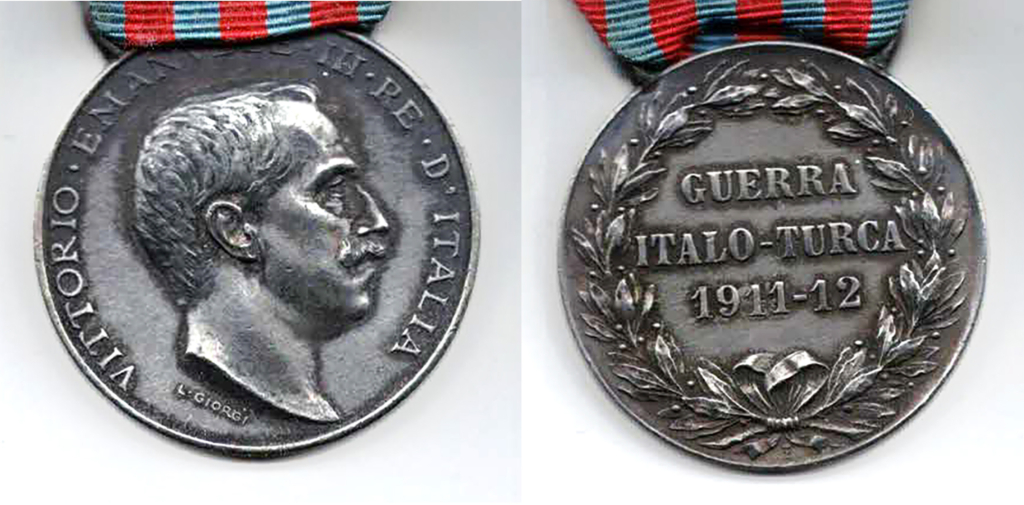
The Commemorative Medal for the Italo-Turkish War 1911-1912 was a medal instituted by Vittorio Emanuele III, King of Italy (pictured on the front), in November 1912 for all civilian personnel and Italian and colonial troops who fought against the Ottoman Empire in the Italo-Turkish War of 1911
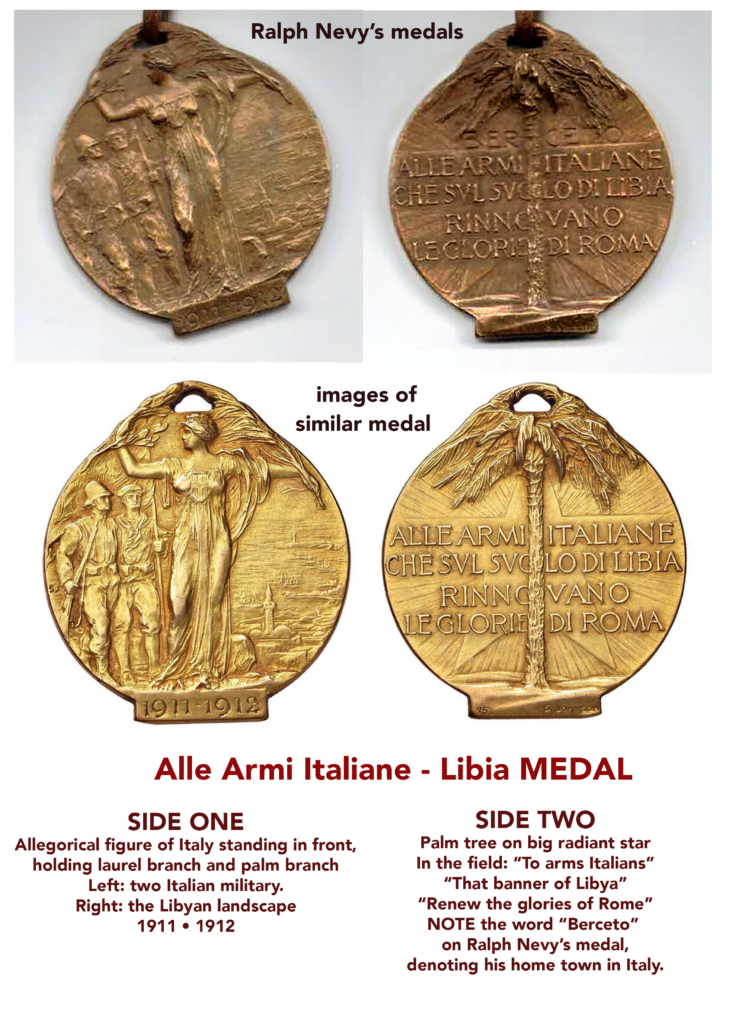
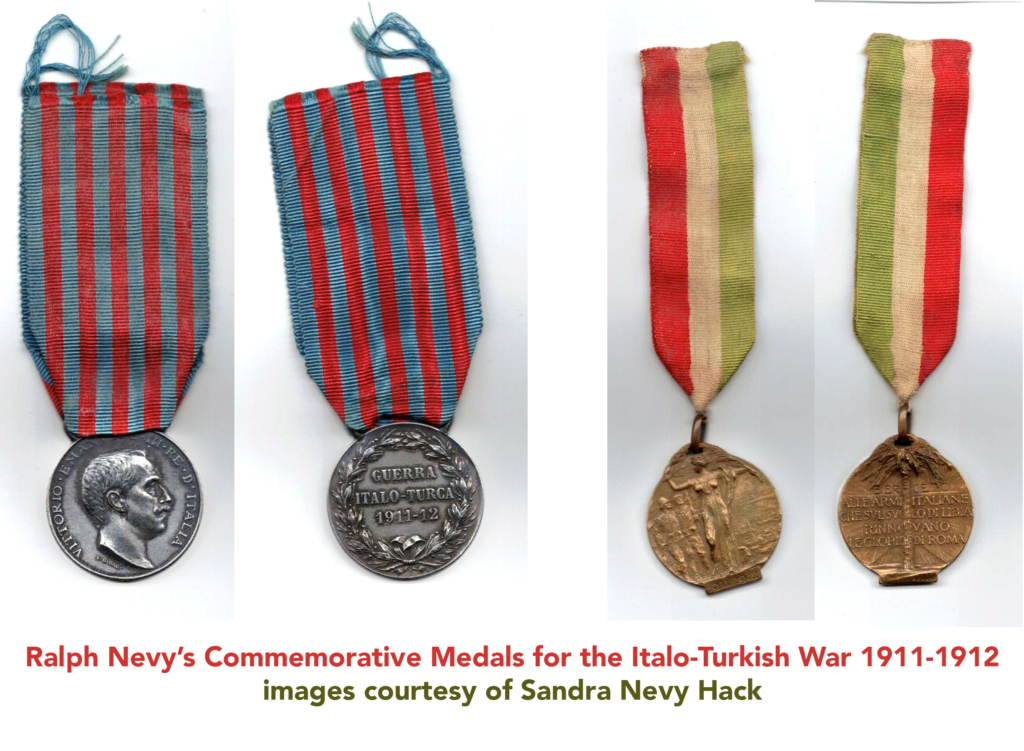
Returning to the US:
And finally they sent me home, and I went up to the Courthouse to get my release and I said: “Make my passport for United States. He look at me and say: “My golly, you just come over and want to leave already?”
Oh yes, I wanna leave. See, I had my mother there yet, but I wanna leave right away. You know, I read so many paper when I was down there, papers, we didn’t have nothing else to do and read paper. And we had trouble there with Austria, Russia, and Germany. And I was reading all this and I said: ” My Golly we’re gonna have a war here.” That’s what I had in mind when I told him to make me the passport right away. And he surprised to see me coming home and leaving right away, but I did.
I came here to the United State and was 3 boys, friend of mine, younger than me and were going back to serve on the army like I did.
And I said to them: “Listen Boy, you going to fight in a big war.”
“You crazy.” they told me. “We’re too civilized to have war.”
“Well, we might be civilized, but we gonna have a war. We’re gonna have a European war.”
They didn’t believe me and they left. That was in 1913. They left and went over there and got drafted. Of course they went to the regular army. But then the war started and you know those boys there they had to serve 7 years in the war. One is there in Cumberland right now, he can tell you. He’s my cousin, but they didn’t believe me, but I could see it, could see the European war coming and that’s why I left right away and all that.
Nonno Tidbits:
Remember, always do the right thing, no matter what it is, do the right thing…the way it should be done and God will help you. And when you do something wrong you gonna get in all kind of trouble. You don’t realize those things. Do the right thing and God will help you.

